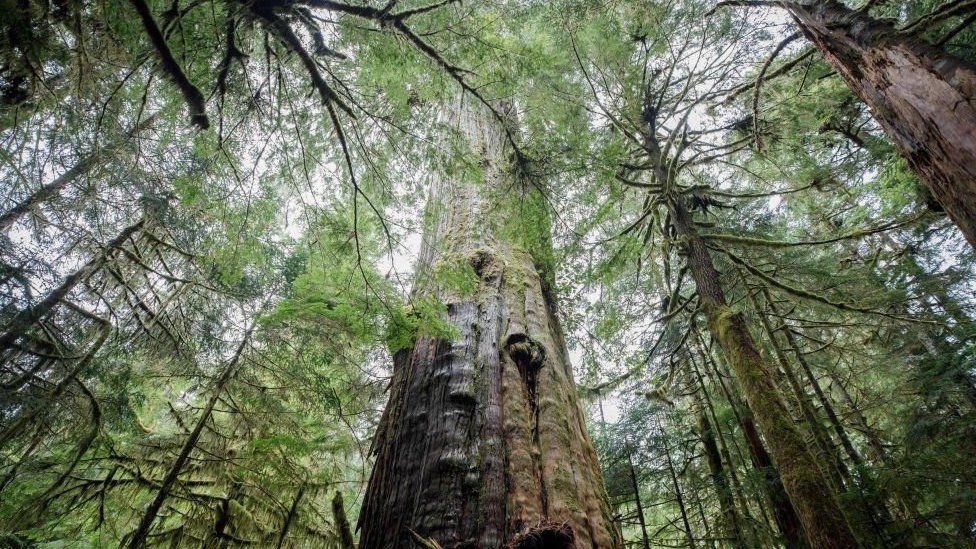Canada: Ambassador tells EU that deforestation rules 'burdensome'
- Published

Canada's ambassador to the European Union has voiced concern with proposed EU rules to curb deforestation.
A November letter from Ailish Campbell said the rules add "burdensome" requirements and will hurt trade between Canada and the EU.
The EU regulation aims to limit the trade of products linked to deforestation worldwide.
Climate campaigners have called Canada's resistance to the rules "shocking".
In the 17 November letter obtained by the BBC, Ms Campbell says Canada supports the objectives of the proposed deforestation regulation, but is "greatly concerned" that some elements will cause trade barriers for Canadian exporters.
She asks for several revisions to the regulation, including providing a delay and a clearer definition for what falls under forest "degradation" - a practice that climate advocates say is widely seen in Canada.
Deforestation is the permanent loss of a forest, for example, replacing it with agricultural alternatives, such as coffee or soybeans.
The proposed EU legislation would also cover forest degradation, which is when the forest ecosystem is eroded. Among the main causes are climate change and illegal or unsustainable logging.
Forest degradation can have a significant impact on things like biodiversity and climate.
Climate campaigners have called the ambassador's letter "outrageous" because of Canada's public commitments to environmental policies.
"It's really shocking that [Canada is] resisting these kinds of measures in Europe to protect the world's remaining forests," said Shane Moffatt, head of Food and Nature at Greenpeace Canada.
EU member states are currently negotiating the final text of the legislation, which was passed with strong support at the EU parliament in September.
The EU Deforestation Regulation would force companies and trade partners to verify that goods being sold to the 27-nation bloc are "deforestation-free".
Ms Campbell did defend Canada's record on deforestation, calling the country a "world leader on forest management", with an annual deforestation rate of 0.02%.
In British Columbia, where a bulk of Canada's logging is done, industry groups like the BC Council of Forest Industries have said their operations meet high standards of sustainability, in part by ensuring that trees are planted in place of those that are harvested on public land, which is required by law.
But Mr Moffatt argued that while Canada's deforestation rates are low, the ambassador's letter ignored the higher rates of forest degradation and the subsequent impact on wildlife.
It has specifically affected the caribou population, which has drastically dwindled in recent years, Mighty Earth CEO Glenn Hurowitz told the BBC.
Canadian forestry practices have been gaining more attention from environmentalists in recent years.
In March, a group of more than 90 scientists penned an open letter to Prime Minister Justin Trudeau outlining concerns about Canada's rate of industrial logging in old-growth forests, which they said had "unique and irreplaceable ecological values".
In response to questions from the BBC, the federal government said they were "undertaking a range of initiatives to protect and restore nature in Canada" including a pledge to plant two billion trees over 10 years, starting in 2021.
Related Topics
- Published3 October 2022
- Published19 November 2021
- Published2 November 2021
- Published17 August 2022